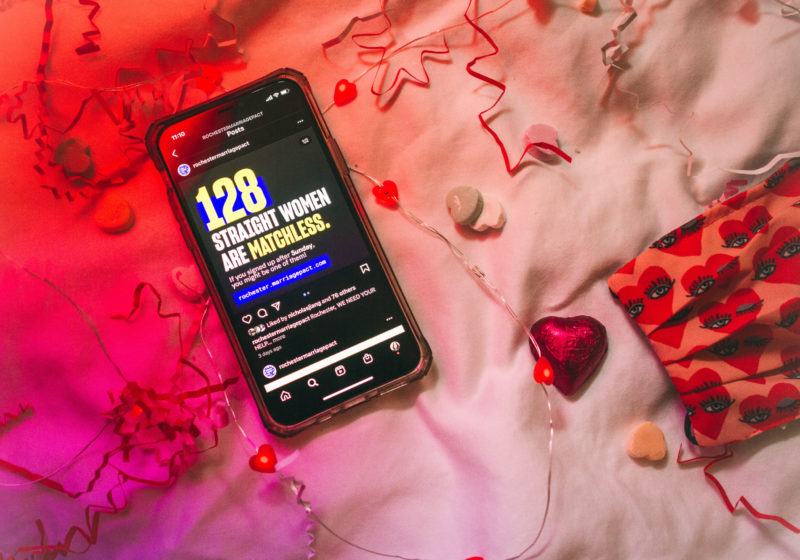“Wanna get penetrated by something other than a COVID swab?” “Find someone more stable than URConnected.” “Stop finding faculty on Grindr — take the marriage pact.” Since Feb. 24, the Rochester Marriage Pact has employed everything from sex jokes to puns through Instagram posts and emails in an effort to reach single students.
The Rochester Marriage Pact is a college-specific matchmaking service — an idea that originated from a market design class project at Stanford, according to the creators. To participate, students had to fill out a 50-question form which was open to the entire UR student body.
After several days of hype, the matches were finally released, and participating students received an email containing the name and email of their match, as well as a few questions both halves of the match answered similarly.
Behind the scenes of the Rochester Marriage Pact was a team of four UR and two Stanford students who used an algorithm to match students with their potential partners.
“The reason we brought [the Marriage Pact] to UR in the first place was so that we could participate in it,” the creators of the Rochester Marriage Pact said. “We primarily chose [to do the Marriage Pact] now simply because COVID[-19] has made social interaction and meeting new people so much harder.”
Another reason was the popularity of the idea seen in other schools such as Stanford and Duke University. “Because the concept was such a hit at Stanford and turned into this quirky school tradition, we’re now trying to bring this experience to UR,” the creators wrote to the Campus Times.
According to the UR team, the questions were “based on psychological and sociological research” and the things that were important when “predicting the long-term success of a relationship.” Cultural differences were also included in the form’s questions as they could either be a huge barrier or a compatible feature for a long-term relationship.
Students had mixed feelings about the Marriage Pact.
First-year Emily Han said she was initially interested in the Marriage Pact as she thought it was “a cool idea,” though she wishes the questions were different.
“I still think it’s a good idea since it’s tailored towards college kids in the same school […] but I wish the questions were different,” she said. “I think asking about values is important, but there are a lot of other things that I would like in a partner besides just having our values match.”
On the other hand, first-year Ro Kamala was shocked when she first heard about the pact. She soon grew to be disappointed, however.
“I thought [the Marriage Pact] was a joke of some sort [and I] only believed it was official when they started sending school-wide emails,” she said. “[Now] I feel lowkey disappointed. I think my expectations were super high. I think most people had high expectations.”
The team hopes that the Marriage Pact will give students a backup plan for the future.
“We hope to provide a fun activity that connects everyone while our social lives are still limited due to COVID[-19],” the creators said. “As students ourselves, we wanted to use this opportunity to bring the school together and give people the opportunity to socialize.”
To learn more about the Marriage Pact, be sure to check out their Medium profile here.
News Editor Haven Worley contributed to the reporting for this article.






